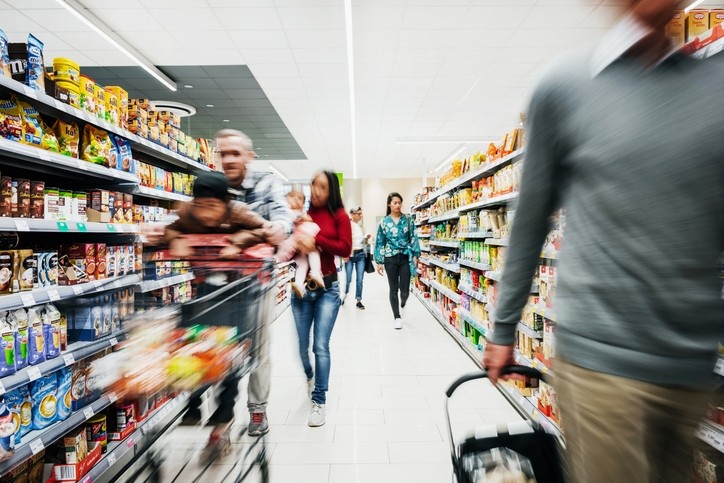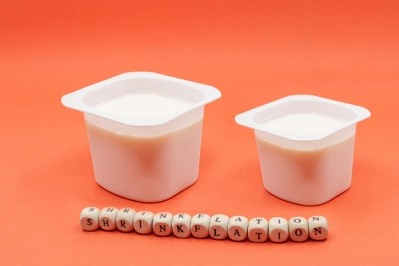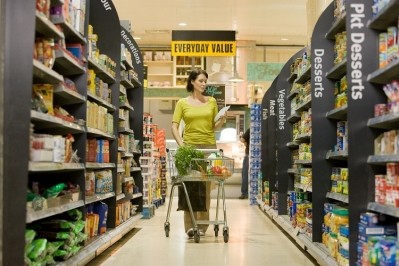Report reveals 16% drop in new product launches as private labels outpace national brands

Private labels have capitalised on the cost-of-living crisis to make up 38% of total FMCG value sales in Europe totalling €229 billion, according to the latest biannual ‘FMCG Demand Signals’ report for Europe by research group Circana, formerly IRI and The NPD Group.
Covering the six largest markets in Europe (France, Italy, Germany, Spain, UK, and Netherlands), the report reveals that the sector has reached a tipping point with private labels outpacing the popularity of national brands across nearly all categories including edible goods.
With the biggest price inflation being almost entirely centred on food categories, the penetration of private labels in chilled, fresh, and ambient foods has been particularly high.
Unpacking the impact of the pandemic, inflation and the cost of living crisis on over 230 FMCG categories, 2000+ product segments and over 10 million SKUs; the report reveals strong private label growth across all six of the largest markets in Europe, with the highest penetration in Spain (47%) and Germany (41%), and the lowest in the UK (37%), where shoppers continue to buy the national brands they trust to deliver good value.
Ananda Roy, Global SVP, Strategic Growth Insights, Circana, said: “Private labels have come a long way since their arrival on the shelves approximately 40 years ago. Retailer investments are paying off as more consumers perceive private labels as being innovative and as good or better than many of the National Brands that they compete with. As a result, they are no longer the ‘cheap’ alternative. Shoppers buy them because they offer something new and of good quality.”
Retailers have been quick to innovate, the report said, particularly in food categories with better quality, taste and flavour and exciting new cuisines. However, across retailers and brands, the study reveals a 16% reduction in new product launches in 2022 compared to 2021. Despite clear advances being made in some areas, such as chilled and fresh and baby food, and retailers growing private labels ranges, innovation is now concentrated on improvements rather than completely new launches.
The report revealed that private label loyalists equal national brand loyalists
The proportion of consumers who say they are loyal to private labels now equals those who say they’re loyal to national brands, according to the report. Notably, 60% of all consumers surveyed said private labels are as good as national brands in areas such as innovativeness, quality, delivering on claims, sustainability, and good image. A quarter thought private labels were better than national brands in those areas. Crucially, 21% of undecided consumers who buy both - many of whom are middle-income cohorts - said they now think private labels are better than national brands.
There has been a significant transformation in consumers’ perception of private labels, with 66% of consumers consider them innovative, making them a huge demand driver.
National brands aren’t necessarily losing loyalty, but shoppers are buying less volume. These brands need to keep innovating in order to maintain momentum and stay ahead of competition, said the report.
Some categories are struggling more than other. One of these is alcohol, with consumers drinking less as they become increasingly determined to not only save money but also improve their health. Opportunities for innovation in areas such as low and no alcohol could be critical for future sector growth.
Roy concluded: “Retailers have transformed private labels into strategy-led, consumer-focused, well-differentiated and data-driven alternatives to national brands. National brands are now having to regard many retailers as significant competition that they can no longer ignore.
“Retailers are clearly winning on many fronts. While not always the least expensive on display in the minds of shoppers, Private labels offer good value, quality, a range of benefits that meet shopper’s dietary choices or lifestyles and can be trusted as much as National brands with high equity sitting on adjacent shelves.
“Shoppers enjoy discovering new products and experiences from Private Labels, telling others about them as it makes them feel better informed, and getting a smart deal that is ultimately a good value without compromises. Retailers have gained more loyalty and share as a result, which could change the shape of grocery retail in the future.”












